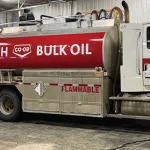
Members of Saskatchewan Cattleman’s Association return from tour in Japan and South Korea
With Japan and South Korea being two of the four largest importers of Canadian beef products, they are some of the most important relationships to maintain in world trade.
A group comprised of representatives from Canada Beef, packers of Canadian beef, and Saskatchewan based cattle farmers Chad and Cyrstal Ross recently finished a two week tour through Japan and South Korea to promote the Canadian product and the methods used to produce Canadian beef.
Along with being a cattle producer from the Estevan area, Chad Ross is also the Vice President of the Saskatchewan Cattleman’s Association. He said that the ‘Canadian Beef Roadshow’ was successful across their four seminars through the two countries.
“There was receptions afterwards too where we got to meet everybody and show our pictures and tell our story. In between those meetings, we had a steady schedule of meetings with the importers, distributors, and retailers all across Japan and in Seoul, South Korea. So it was a very action-packed, intense trip with a lot of talk and a lot of meetings and it was very good.”


